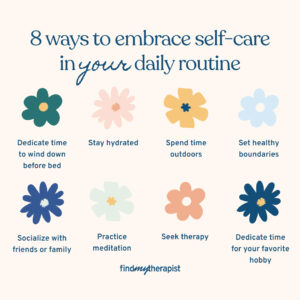Setting Boundaries as a New Mom

Becoming a new mom is one of life’s most beautiful transitions — but it can also be overwhelming. Along with sleep deprivation, feeding schedules, and navigating your baby’s needs, you may find yourself dealing with unexpected pressures from family, friends, and even strangers. This is where setting boundaries as a new mom becomes not just important but essential.
Boundaries help protect your mental health, give your baby the best start possible, and ensure you’re not spread too thin. In this guide, we’ll explore why boundaries matter, how to set them, and practical scripts to make those sometimes-tricky conversations easier.
Why boundaries matter for new moms
Boundaries aren’t about pushing people away — they’re about protecting your peace and your new family unit. When you become a mom, you quickly realize how much external influence can creep into your day: frequent visitors, unsolicited advice, people wanting to hold the baby when you’re not comfortable, and expectations to “bounce back” or “host” when you’re trying to navigate new parenthood.
Without clear boundaries, new moms can feel drained, overwhelmed, and pressured to meet unrealistic expectations. Some new moms may develop postpartum depression (PPD). Signs of postpartum depression can include:
- Persistent sadness or hopelessness
- Difficulty bonding with your baby
- Extreme fatigue or insomnia
- Loss of interest in activities you once enjoyed
- Irritability
- Feelings of guilt, worthlessness, or anxiety
If you’re experiencing any of these symptoms, reach out to a mental health professional for support.
Setting “house rules” for new moms
Before your baby arrives, or even after they’re here, sit down and make a clear plan about what you’re comfortable with regarding visitors, support, and your own needs. Think of this as creating your postpartum “house rules.”
Here are some questions to help you get started:
- Who is allowed to visit, and when?
- How much notice should visitors give?
- Are there health guidelines (no sick visitors, hand-washing, no kissing the baby)?
- How long should visits last?
- Do you want help with household chores or meals, or would you prefer quiet bonding time?
- How will you communicate these rules?
Having a clear plan means you won’t feel pressured to make decisions on the spot when you’re already tired or vulnerable. You can even send out a friendly group message before the baby arrives, letting loved ones know what to expect, like: “Hi everyone! As we get ready to welcome Baby, we wanted to share a few things that will help us stay rested and healthy during those first weeks..“
A little communication upfront can save a lot of stress later.
What to ask for when help is offered
When people say, “Let me know if you need anything,” it’s tempting to brush it off with a polite “Thanks, we’re good!” But asking for help doesn’t make you a burden — it makes you human.
Here are helpful things you can request when someone offers:
- Dropping off meals (without staying to visit unless invited)
- Running errands, like grocery pick-up
- Walking your dog
- Quick household chores like taking out the trash or folding laundry
- Providing you with a few hours of uninterrupted rest while they care for the baby (if you’re comfortable with that)
Try responding like this: “Thank you so much! We’d really appreciate a meal drop-off this week. I’ll text you when a good day comes up.“
Or: “Honestly, laundry has been piling up. If you’re up for folding a load or two while you’re here, that would be amazing.“
The key is being both specific and gracious.
Scripts for setting boundaries
One of the hardest parts of navigating postpartum life is learning how to say “no.” People mean well, but that doesn’t mean you have to accommodate every request.
Here are some simple scripts for setting boundaries politely:
-
For unexpected visits: “We’re keeping things quiet at home right now. We’ll reach out when we’re ready for visitors!”
-
For holding the baby when you’re not comfortable: “We’re keeping snuggles limited to immediate family right now to keep the baby healthy.”
-
For staying too long: “I’m so glad you stopped by! I need to rest now, so we’re going to wind down.”
-
For invitations you’re not ready for: “We’re staying home to focus on baby and recovery right now, but we hope to join in next time!”
You don’t owe anyone an in-depth explanation. Kind, direct communication is enough.
Handling unsolicited parenting advice
From feeding methods to sleep routines, everyone has an opinion—and many will share theirs, whether you ask or not. It can be exhausting navigating unsolicited parenting advice while trying to follow your own instincts (or your pediatrician’s guidance).
Here are a few ways to redirect unwanted advice:
- “Thank you! We’re following our doctor’s recommendations.”
- “We’re doing what works best for us right now.”
- “I appreciate your input, but we’re comfortable with our plan.”
- “It’s so interesting how things have changed over the years!”
The goal is to be polite but firm. You don’t have to debate, explain, or justify your decisions. Smile, nod, and move on.
Self-boundaries and self-care
Boundaries aren’t just for others — they’re for you, too. Postpartum self-care is often overlooked, but it’s important. Without boundaries around your time and energy, burnout happens fast.
Consider setting these self-boundaries:
- Set digital boundaries: Limit social media that triggers comparison or information overload.
- Schedule “me time”: Even if it’s just 15 minutes a day, carve out time for yourself. Take a warm shower, read a book, or enjoy a quiet cup of tea.
- Delegate responsibilities: Share parenting duties with your partner, if possible, and don’t hesitate to ask for help.
- Designate a quiet zone: Have a space where you can retreat for moments of peace.
- Limit overstimulation: Too many visitors, loud noises, and clutter can be overwhelming. Keep your space calm and soothing.
Motherhood is a full-time role, but you are still an individual with personal needs. Self-care doesn’t have to be fancy or expensive. Consider these ways to practice self-care:
- Take time to rest without guilt: Sleep deprivation is common for new moms. Accept help from loved ones so you can naps and recharge.
- Respect your emotional needs: Know that it’s okay to say no to activities or social gatherings that feel overwhelming.
- Maintain hobbies: Whether it’s painting, journaling, or yoga, continue engaging in activities that bring you joy.
- Stay connected: Maintain friendships and relationships outside of motherhood to avoid isolation.
Takeaway
Setting boundaries as a new mom isn’t about pushing people away. It’s about creating a space where you and your baby can thrive. By prioritizing self-care, managing visitors, protecting personal space, and confidently communicating your needs, you can navigate motherhood with less stress and more joy.
Remember, it’s okay to say no, take time for yourself, and do things your way. Motherhood is a personal journey, and setting boundaries will help you embrace it on your own terms.
If you’re struggling to navigate new motherhood, you’re not alone. Our network of licensed therapists are here to support you. Browse our therapists at findmytherapist.com, pick a time that works best for you, and schedule your first appointment online.
Ready to prioritize your mental health?
Great Lakes Psychology Group is here to help. With an extensive network of caring therapists available to meet online or in-person, we make it easy to find the right fit for your unique needs.



